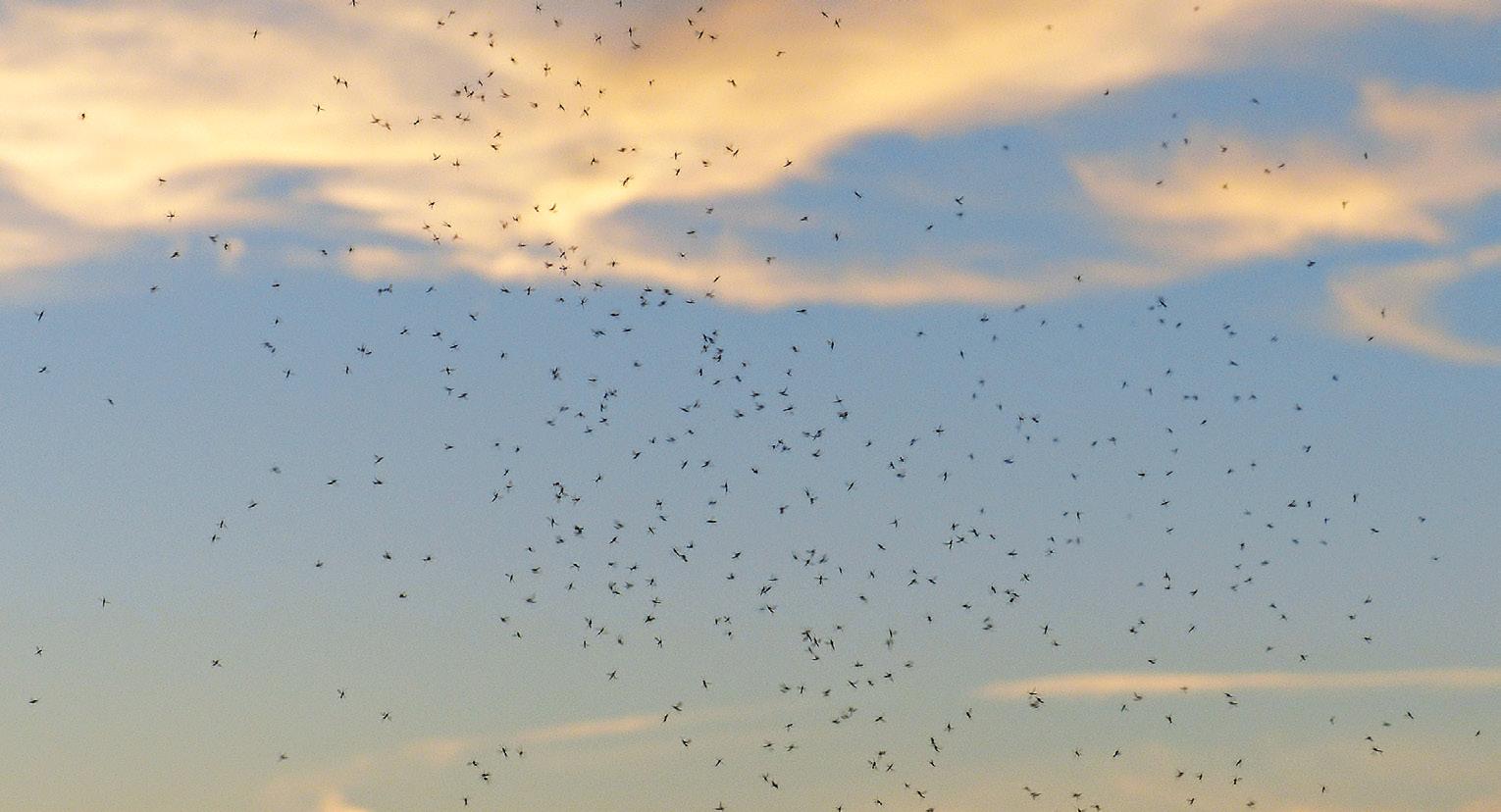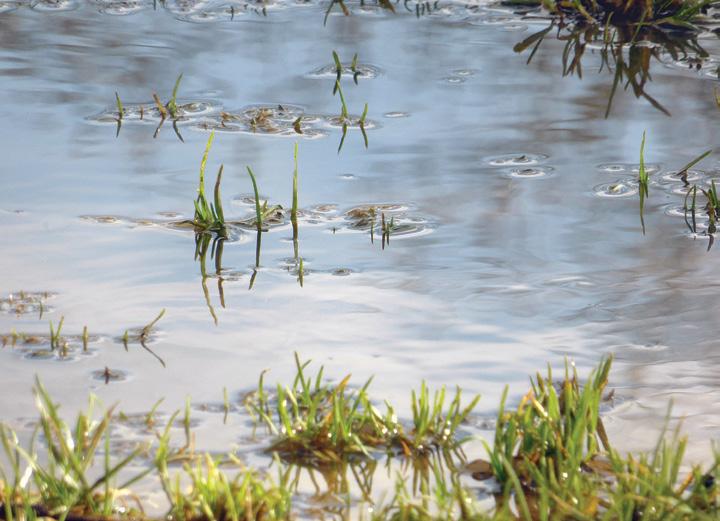
5 minute read
Mosquitoes
By Dorothy Dobbie
Have you ever been in a fog of mosquitoes, where the air is so thick with them you can barely see? At certain times of the year around wet areas of Canada, this is a not unheard-of event. However, it is likely that the biggest annoyance will be having them fly up your nose rather than biting you because chances are they are engaged in a mating swarm.
Advertisement
When the editor of this magazine, Shauna, was a baby, we happened to be camping at a place called Beaver Creek halfway up Lake Winnipeg. It was the night Neil Armstrong first walked on the moon. At the campsite, there was an old caretaker who came and asked us if we would like to watch the moon walk with him on the television that he had hooked up using a generator from an old washing machine. We declined as Shauna was fussy.
Instead, as dusk descended, we climbed into our station wagon with Shauna and her three-year older sister, Lori, and listened to the moon walk on the car radio. As we sat there, hearing those famous words, “One small step for man, one giant step for mankind”, a cloud of mosquitoes descended from the lake—we could barely see the moon rising over the water. Then, just as suddenly, from behind us in the forest, an air force of dragonflies came swooping in. For a magical half hour, we listened to history being made in space while we watched a very real-life aerial battle waged on earth.
Male mosquitoes, which do not bite, hatch first in spring, followed by females which do bite after mating when they need a blood meal of protein to develop their eggs. Males live anywhere from a few days to a couple of weeks, during which time they and the females live on nectar gathered from flowers. Females live up to 10 to 18 days under ideal conditions.
You have probably been with people who are seldom bothered by mosquitoes and it is true that these flying pests have preferences. If you are the favoured one, it may have to do with your body chemistry: do you smell good to a mosquito? Do you have a hot body? The lactic acid in your sweat is nectar to a hungry female! Heavy breathers are probably putting out a lot of carbon dioxide which mosquitoes use to pinpoint the blood donors. They also have darned good eyesight. They can spot you from 150 feet away.

Beware the mosquito fog of summer!
It has long been said that a full moon brings out the biting mosquitoes and it is thought that this may be due to the better light for hunting their next meal. That said, they are not hot weather lovers and will retire to a cool and shady spot in the garden when the sun is at its zenith. They hide from wind and do not like the rain, although if a rain drop falls on them, which it does 25 percent of the time, the drop, which is 50 times heavier that the mosquito, absorbs the mosquito and carries it downward. But the intrepid insect manages to pull away just before the drop hits the ground due to the shape of its body, its wings, and its long legs. Still, it would rather not make the effort. But they love the residue of rain which is lots of standing water, and it does not have to be much. A teaspoonful would be enough for an egg deposit.
So, what to do? Keep your yard free of still water. Birdbaths and still ponds can be treated with Bti (Bacillus thuringiensis spp. Israelensis) which interrupts the development of the larvae but does not affect birds or other animals. You can also add a fountain or other device to keep the water moving. However, that only deals with 60 percent of the little devils because some members of the common Culex family lay their eggs on vegetation on or near water, including boggy, swampy areas. If your pond has a lot of marginal plants, the moving water may not deter them all.
For your own protection, wear light-coloured clothes. Stay calm. Do not perfume your body. Wash your feet. Use a product containing at least 50 per cent DEET, or picaridin if you are allergic to DEET. While DEET is recommended by the World Health Organization and has been in use since 1946, it is known to dissolve plas- tics and some synthetic materials. It is smelly and greasy. Picaridin, a synthetic developed by Bayer in the 1980s, does not have an odour (to us) and is not greasy nor does it dissolve plastic. It is now available in Canada. Effective for up to 12 hours against ticks as well.

Be sure to keep your yard free of still water.
What to do about mosquito bites
By Shauna Dobbie
1. Corticosteroids. Hydrocortisone is one treatment for the itch of mosquito bites and should provide relief. 2. Heat. Use a Therapik, which is a hand-held, battery-operated device that will pinpoint heat on the bite to relieve the itch. You can also use a teaspoon heated with water (or after stirring tea) applied to the bite but be careful not to burn yourself. 3. Cold. A cold pack applied to the bite will help.
4. Aloe vera. Gel from the allhealing plant can ease the effect of a mosquito bite. 5. Baking soda paste. Mix a paste of baking soda and just a touch of water and apply it to the bump. 6. Vinegar. This is one my sister and I used to use all the time. Use a cotton ball to dab some vinegar onto a bite. It helps if the vinegar was kept in the fridge. Dr. Google says to use apple cider vinegar, but we just used plain old white vinegar and found that it worked. 7. Witch hazel. Use the same directions as for vinegar. 8. Oatmeal. Just like it works for chicken pox, it works for mosquito bites. Spoon some prepared oatmeal onto a washcloth and hold it against the bite for about 10 minutes.
In all cases, the sooner you can treat the bite the more success you’ll have. And, of course, do your best not to scratch the bite!










